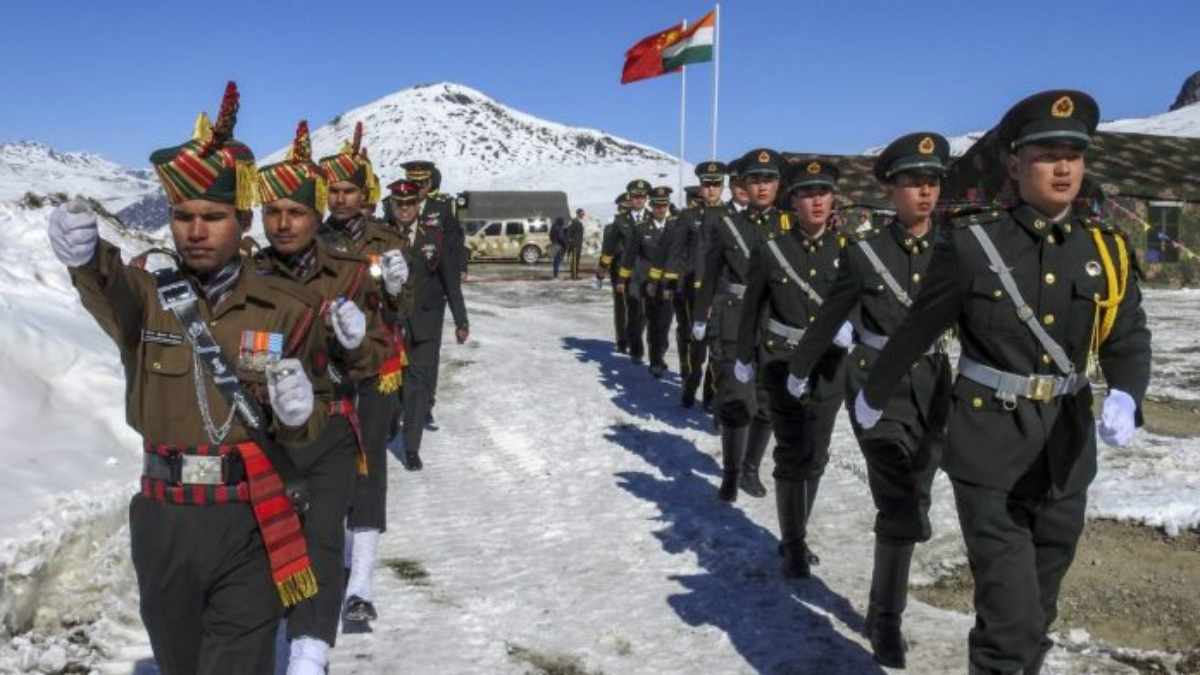


In a significant development, India and China have resolved to stop sending more troops to the frontline, and refrain from unilaterally changing the situation on the Line of Actual Control (LAC). After a 14-hour-long marathon meeting between both the countries at the Corps Commander level on Monday, New Delhi and Beijing on Tuesday issued a joint statement expressing this resolve.
“The two sides had candid and in-depth exchanges of views on stabilising the situation along the LAC in the India-China border areas. They agreed to earnestly implement the important consensus reached by the leaders of the two countries, strengthen communication on the ground, avoid misunderstandings and misjudgments,” the statement further said. It also said that the two sides agreed to hold the next round of military commander-level meeting as soon as possible and jointly safeguard peace and tranquility in the border area.
The joint statement from India and China stated that both sides will enhance communication to avoid misunderstandings and also implement the five-point consensus reached by foreign ministers S. Jaishankar and Wang Yi at the sidelines of the SCO summit in Moscow on 10 September.
During the JaishankarWang meeting, both sides agreed for a five-point consensus with a strong emphasis on maintaining peace and tranquillity, dialogue, and disengagement. Both leaders agreed that the current situation on the border areas is not in the interest of either side saying the border troops of both sides should continue their dialogue, quickly disengage, maintain proper distance and ease tensions.
The statement posted on the MEA’s website reads: “On September 21, the two sides had candid and indepth exchanges of views on stabilising the situation along the LAC in the IndiaChina border areas.
They agreed to earnestly implement the important consensus reached by the leaders of the two countries, strengthen communication on the ground, avoid misunderstandings and misjudgments, stop sending more troops to the frontline, refrain from unilaterally changing the situation on the ground, and avoid taking any actions that may complicate the situation. The two sides also agreed to hold the 7th round of Military CommanderLevel Meeting as soon as possible, take practical measures to properly solve problems on the ground, and jointly safeguard peace and tranquility in the border area.”
EAM Jaishankar during his meeting Wang Yi in Moscow was quite categorical while raising the issue of PLA troops’ mobilisation along the LAC and their attempt to unilaterally alter the status quo. Jaishankar had said that amassing of PLA troops on the LAC is objectionable and in violation of the agreements of 1993 and 1996 between both the nations.
Sources said that with China agreeing to stop sending troops on the LAC, the next step that India would expect from it is “disengage and de-escalate” as soon as possible. Jaishankar during his conversation with Wang Yi was insistent on PLA troops going back to where they were in the month of April this year. India will now ensure that in the next couple of rounds of talks, Beijing announces commencement of the disengagement process, say sources. Earlier, during a meeting on the Ladakh standoff, India on Monday categorically asked Beijing to ensure “concrete and complete” PLA’s troop disengagement from the friction points at Pangong Tso, Chushul and Gogra-Hotsprings. The Indian side also told the Chinese interlocutors to finalise the roadmap for de-escalation along the entire frontier in eastern Ladakh, sources said.
According to sources, Chinese officials told Indian military and MEA officers to have a couple of more rounds of talks to find out a resolution of the “complex” deadlock. Sources said that during the initial rounds of the talks when Chinese officials sought to justify their stand, India categorically told China to move back to the positions which existed before April-May 2020.
“Indian delegation insisted on a time-bound implementation of the agreement finalised during the extensive talks between External Affairs Minister S Jaishankar and his Chinese counterpart Wang Yi in Moscow on the sidelines of a Shanghai Cooperation Organisation (SCO) meet,” sources said.
Indian diplomat Naveen Srivastava, who heads the China desk in the MEA, was also in the meeting. He is said to have briefed Jaishankar on the nitty-gritty of the meeting on Tuesday. “That both sides are still talking is something that can be seen as a positive development,” an official says. The military commanders of India and China held the meet at the Chushul-Moldo point on the Chinese side of LAC.